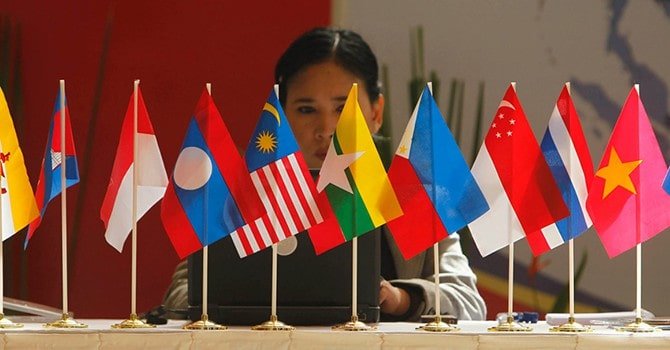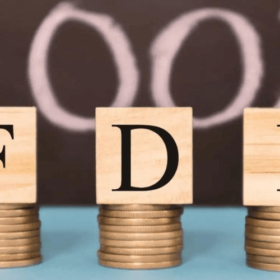
Vietnam has emerged as one of the countries attracting the most FDI capital in Southeast Asia with a fast growing economy, stable politics, a young population and competitive labor costs.
However, from the perspective of Korean and Japanese experts, Vietnam has many fierce competitors in the race to attract foreign direct investment. The evidence is that at present, many other Southeast Asian countries are also speeding up to attract shifting FDI inflows, including Indonesia, the Philippines, Thailand and Malaysia.
Indonesia is the most formidable opponent of Vietnam if it does not take into account the criteria of Infrastructure
According to analysis by Mr. Hong Sun, Vice Chairman of Korea Business Association in Vietnam (KORCHAM), Indonesia has many advantages when the population is 250 million people, creating a competitive and large number of employees. On the other hand, the number of people in Indonesia's middle and upper classes is also much higher than Vietnam, which is a potential market for many items.
In addition, Indonesia possesses abundant natural resources when there are many minerals such as coal and oil. The country also has a large area of tropical jungle. The Indonesian government is also very open in attracting investment, offering many tax incentive policies for foreign businesses.
Prof. Nguyen Mai, Chairman of the Association of FDI Enterprises in Vietnam, added that Indonesia is one of the countries with the strongest moves to approach the shifting FDI inflows.
In May, President Joko Widodo had a phone call with US President Donald Trump to entice US businesses to transfer their lines to the nation of thousands of islands.
Indonesia also offers great incentives, especially in terms of infrastructure. The country has planned to build 27 new industrial parks, including a project to prepare 5.000 hectares of land in Central Java province, inviting foreign businesses. The Indonesian government also aims to gradually reduce corporate income tax to 20% by 2023.
However, Hong Sun said Indonesia's infrastructure is complicated by the country's fragmentation of the islands. Some places are fairly developed, but some are outdated. On the contrary, he assessed that Vietnam has a more developed infrastructure. In terms of criteria where there is the most Japanese business community, Thailand is a "heavyweight" competitor of Vietnam According to Takeo Nakajima, Chief Representative of Japan External Trade Organization (JETRO) Office in Hanoi, said: Compared to the cost of manpower, today, Indonesia and the Philippines are similar to Vietnam. Considering this criteria, the two countries above will be the biggest competitors. Considering the criteria of cheap labor, good infrastructure, Laos and Cambodia will be put on the scale. However, Laos and Cambodia have cheaper labor, but not as good infrastructure as Vietnam. Still nIf Japanese enterprises choose a place that has invested a lot, Thailand will be a formidable opponent of Vietnam. Thailand prioritizes high technology content areas to attract investment such as aerospace, medical equipment, electric cars, or high quality spare parts and components. The "bold" investment attraction strategy of the Philippines and MalaysiaPhilippines chooses to reduce taxes. The country quickly cut corporate income tax (currently the highest in Southeast Asia at 30%) to 25% in July.
The Malaysian government even plans to send representatives to mobilize about 60 multinational companies to open factories in Malaysia. The country approved a $ 240 million five-year support package, which focused on tax breaks and financial support.
Mr. Takeo Nakajima said that there are many angles to assess the attractiveness of a country with businesses. Businesses when deciding to invest in a country will overall assess the factors. However, Japanese businesses are highly appreciating Vietnam. Evidence is that out of 30 businesses supported by Japan's Ministry of Economy, Trade and Industry (METI) to diversify their supply chains, 15 choose Vietnam. He shared that Vietnam will be one of the places with a good business environment not only in the short term but also in the long term. Vietnam is and will be subject to very fierce competition in the race to attract capital. Some ASEAN countries were shocked when 15/30 Japanese enterprises chose Vietnam, which will make other countries make more efforts and the competition promises to be more intense.
Improve infrastructure, loosen investment requirements
Regarding the strategy of attracting foreign investors of Vietnam, Mr. Hong Sun said that the Government of Vietnam should continue to improve infrastructure, creating a clear policy. This will help attract more businesses to invest, do business and do business.
Mr. Takeo Nakajima added that, in terms of institutions and policies, the Government of Vietnam needs to listen to business opinions more to create a favorable and transparent environment.
Developing supporting industries, developing quality human resources
Mr. Takeo Nakajima said that early control of the Covid-19 epidemic in Vietnam was an advantage and helped businesses to restore production. Vietnam with a population of nearly 100 million will be an attractive market now and in the future. Labor costs in Vietnam are quite competitive compared to other countries in the region.
The attraction of Vietnam compared to other ASEAN countries is that the percentage of people who speak Japanese is very high, surpassing other countries. Therefore, Japanese businesses will consider this as a "soft" advantage to invest.
To be more attractive, the Chief Representative of JETRO Office in Hanoi said that it is necessary to increase the localization rate of Vietnam by developing supporting industries. Along with that, it is necessary to develop high quality human resources.








